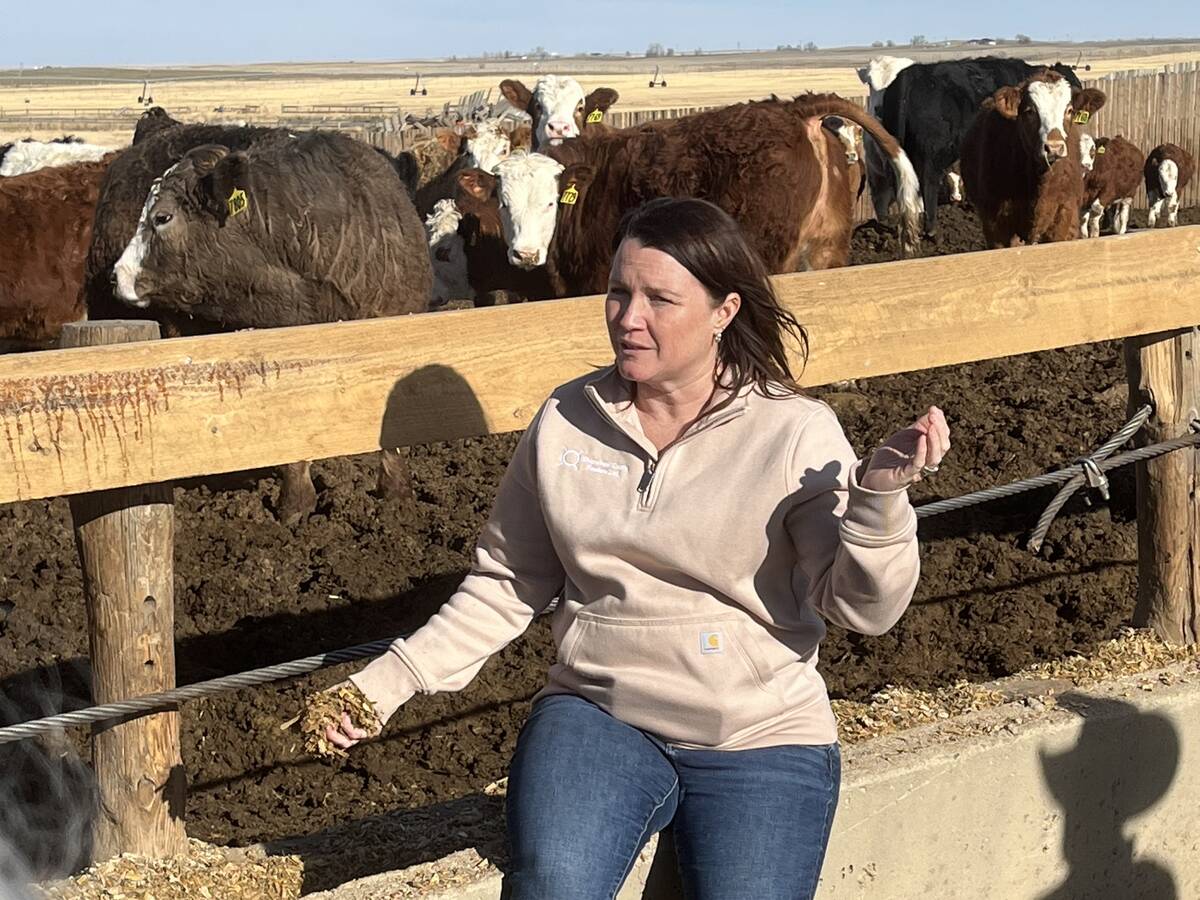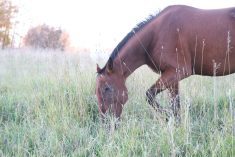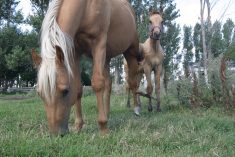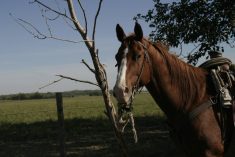Rescue horses bring great awareness to equine welfare and serve as powerful reminders of the significance of responsible horse ownership. Like equine ambassadors, they provide valuable feedback and insights into the industry.
These horses showcase the powerful outcomes that can be achieved when their fundamental needs change from absent to fulfilled.
The term “rescue horse” does not automatically imply flaws or issues with the horse. It simply indicates they have been surrendered or abandoned or seen neglect, abuse or inadequate care.
The term may carry a negative connotation or suggest the horse is damaged or unwanted, but it is important to recognize that rescue horses, like any other horses, can lead fulfilling lives and thrive with appropriate care, training and support.
Read Also

Roots of Resilience: The 50-year evolution of Shipwheel Cattle Feeders
Alberta’s Shipwheel Cattle Feeders is one of Canada’s pioneers in holistic regenerative agricultural practices.
They serve as a voice for equine welfare, bringing attention to concerns and fostering discussion on challenging subjects like meaningful husbandry practices and the fate of sport horses deemed no longer economically viable by the industry.
The stories and physical conditions of neglected horses shed light on the importance of proper care and teach us valuable lessons. Observing the transformation and improved well-being of a once-neglected horse can ignite strong desire to provide better care for all horses. It motivates individuals to be more attentive, proactive and compassionate in their own horse-care routines.
The ‘rescued’ horse is typically taken in by animal welfare organizations or individuals who provide them with care, rehabilitation and a better lot in life.

It is a common misconception that all rescue horses are skinny and malnourished. While some may have been neglected or mistreated, there are many other reasons why a horse is ‘rescued.’ For example, the previous owners may no longer be able to provide care due to financial difficulties, health issues or personal circumstances.
Each rescue horse has a unique story that must be considered when addressing its needs. They have diverse backgrounds, breeds and disciplines, resulting in varying needs. Some may require extensive physical and behavioural rehabilitation and training, while others may be in relatively good health.
Despite their past experiences, many rescue horses have the potential to recover and flourish as companions and working horses. It is essential to recognize their individuality and provide necessary support and care, giving them a chance for a better life with a new purpose tailored to who they are.
A comprehensive assessment with a veterinary professional is valuable when prioritizing care. Rescue horses often have underlying health issues that require sequential medical attention. It’s important to address these issues in a structured manner, prioritizing the most pressing concerns while considering the horse’s overall well-being.
Caregivers often want to swiftly restore health by providing “everything they need.” However, it’s important to understand that certain essential elements play a significant role in the overall well-being of all horses, perhaps even more so for those who are recovering.
These include consistent access to high-quality long-stem forage, free-choice minerals and salt, availability of fresh water, sufficient pasture space for movement and natural expression and the companionship of other horses.
When it comes to dental and hoof care, approach these aspects gradually and with caution, considering the horse’s increasing strength and ability to adapt to changes. Procedures like dental work, hoof care and deworming require a certain level of strength and health. A weak horse can be overwhelmed and fall further into decline.
Socialization plays a vital role in rehabilitating rescue horses. By allowing them to socialize within a herd setting, they can learn social skills and behaviours from fellow equines. This benefits their general adjustment and receptiveness to human training and handling.
Many face challenges stemming from past experiences of isolation or confinement. This can result in social awkwardness when they interact with other horses.
To address this issue, introduce them to kind, patient herd mates in a supervised environment that has enough space for movement and interaction.
Rescue horses are frequently unfairly judged as ill-mannered, but often have not received the necessary education and guidance from a human handler to understand acceptable behaviour. Therefore, it’s important to handle them with patience, consistency and clarity.
An advanced education and level of experience can be an advantage when working with these horses, but it is not the sole determinant of one’s ability to offer a suitable home for a rescue horse. Willingness to learn, a strong commitment to the horse’s well-being and a stable financial situation are also factors.
To lessen the need for rescue organizations, horse owners can take proactive steps to be responsible caretakers. This involves practising proper husbandry, mindful breeding and dedicating time and effort to socialize and train horses to foster positive behaviour.
Recognize when professional help is necessary. Equally important is being accountable for financial commitments and demonstrating compassion and kindness toward the aging or retired horse.
Corruption and challenges can affect animal rescue groups, just like any other organization. Therefore, when financially supporting a horse rescue organization, look for transparency in its financial records, a clear mission statement, proof of adequate facilities and a successful track record.
















